Get Angry Again
The ground on which George Floyd was pinned in Minneapolis, Minnesota gave flight to a predictably short-lived revolution.
In June 2020, 67 percent of White adults in America supported the statement “Black Lives Matter.” This fall, only a few months later, that number has plummeted to 55 percent. That means that 45 out of 100 adults in this country do not openly support BLM. These numbers should horrify you. However, as disgusted as I am by these statistics, I can’t say I’m surprised.
After the murder of George Floyd, the Black Lives Matter movement was treated like a trend. White guilt was the root cause of many superficial actions and it was all too predictable that the heightened interest in the movement would soon fade. Now, Instagram feeds are moving back to normal, news coverage has dwindled and many seem to have left this issue in the past. But treating Black lives as a trend is dangerous and far too common. It not only changes the narrative of the movement but fuels an inaccurate sense of achievement. BLM still needs your support. Instead of pretending we’ve solved issues that are still quite prevalent, we need to get angry again.
Allowing massive surges in our society’s interest in social justice changes the narrative. A clear example of this was the mass posting of black squares on Instagram on Blackout Tuesday. Blackout Tuesday was originally meant as an initiative to bring attention to Black artists in the music industry by pausing business as usual on social media. This intention got lost as the day quickly became about white guilt and black squares flooded out the #blacklivesmatter page, thus drowning important educational material about racism. Although with good intentions, nearly all of the people I follow made the narrative about themselves through rushing to prove to their friends that they are not racist. A movement that was intended to encourage listening to Black people’s stories quickly transformed into many people showing support not out of a desire to do the right thing, but because it eased their guilt to do so. Of course this type of “support” naturally leads to a major decline of interest in a movement because how can a person continually care about an issue they never really understood in the first place? Trending activism–while flashy–is not sustainable and creates a self-centered narrative.
Trends in public interest in issues also produce a false sense of achievement. This summer, many people offered some form of help to the Black community and the Black Lives Matter movement. And while millions of Americans have marched, protested and educated themselves, there is so much left to fix that thinking we’ve changed enough is dangerous. Police brutality didn’t disappear in June, workplace discrimination exists every day and Breonna Taylor still deserves justice. Black Americans are experiencing the highest death tolls from COVID-19 of any race in America: 3.2 times more black Americans have died from COVID-19 than white Americans as of Oct. 13, 2020. This is because racial minority groups are more likely to encounter trouble when getting care. This is all just the tip of the iceberg.
Issues like these are not solved when white Instagramers stop posting about them. They are not solved when Donald Trump or any other politician says they are. These issues are solved when racism ceases to impact Black American lives and until that day comes we all need to continuously care instead of listening to our egos telling us we’ve accomplished enough. Mass racism in this country still exists; it didn’t end in June.
Spikes in public interest like what we experienced this summer are not all bad. They can raise mass awareness and knowledge around issues previously hidden away. Millions of Americans have done substantial work towards ending racism in the recent uproar of BLM. However, many people have moved on as if nothing happened. This is where we need sustainable activism to keep up a steady battle. People need to care now as much as they did two months ago and care twice as much next year. Awareness needs to be continuous or crashes in ambition like what we’re seeing now will just keep happening.
The fact that interest in BLM has decreased so much in a matter of a few months is an issue and one I cannot ignore. No matter if you think you’ve done enough, it’s not too late to get back in the game and proactively this time. Keep reading educational books about racism and learning unfiltered, non-Eurocentric history. Give your support to anti-racism organizations through donations, have conversations with people you know and inspire others to start caring again if you’ve noticed their interest taper off. Keep reflecting on the privileges you may have based on skin color that others don’t and how policies and society might reinforce those privileges for you. We all have more to learn in supporting black lives and being actively anti-racist and while I certainly have more to do, I’m still angry. My question is, are you?

Halie Leland is a sophomore and a first-year member of The Owl staff. Though she adores sports as an avid skier, volleyball player, and black belt in karate, she has always had a love for writing. By joining The Owl Halie hopes to develop her writing skills further and explore journalism. Her main topics of interest include opinion, news, and feature stories. Although she now enjoys hiking and kombucha, Halie is not a Boulder native. Having grown up in New Mexico gives her an outsider’s perspective on this quirky place we live in, as well as an addiction to green chile. When she’s not working out, serving up aces, or teaching little martial artists, you can find Halie out in nature, reading...


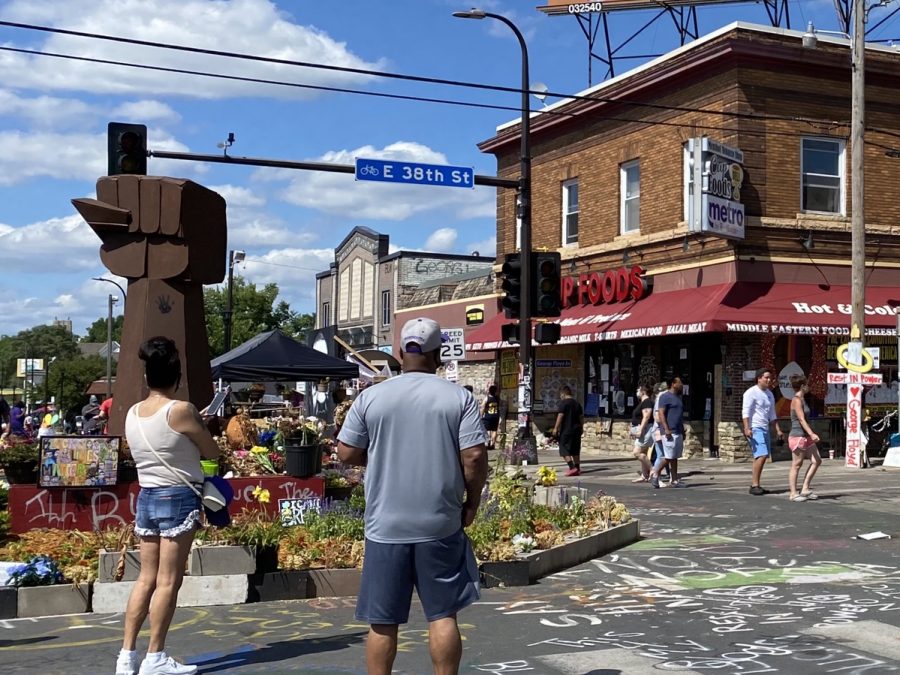
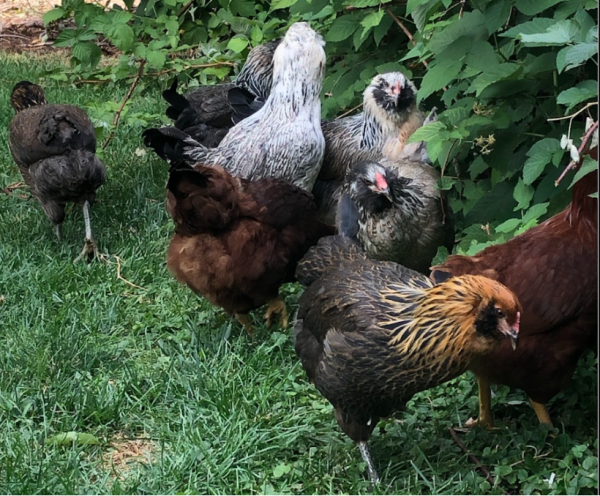
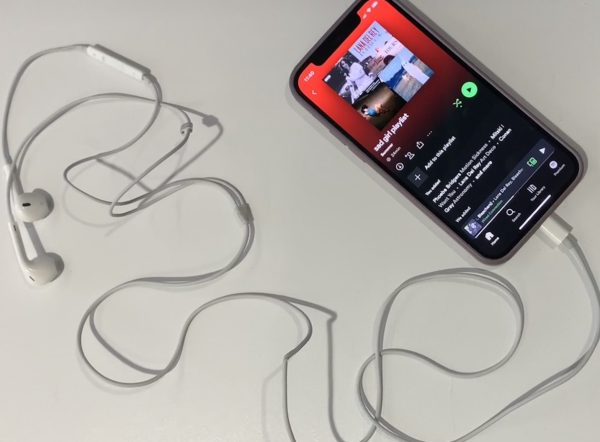
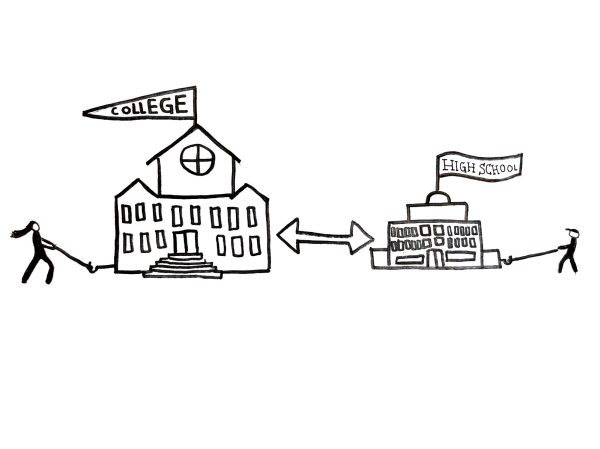
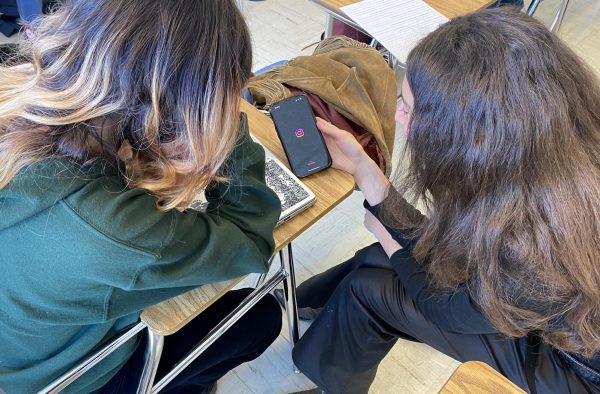
T. Wagner • Dec 14, 2020 at 12:15 pm
This is such an important article. I’ve noticed a trend in white “allies” to try to establish themselves as the victim in racial scenarios like the BLM movement, likely to assuage their own subconscious guilt over the existence of their privilege or how little they’ve helped in the past, but sometimes out of pure internalized racism. During the peak of the BLM movement in June, I noticed many Instagram accounts (by white people) try to spin the narrative in their benefit, making posts about how “they’ve lost SOOO many followers after they started posting about BLM, but they don’t even care, because those people are on the wrong side of history!!!” They act the victim, showing how much they’re ‘giving up’ or ‘losing’ to support the cause, but it’s not even true in many cases, as their socialblades would show that they actually gained followers not just through posting about BLM, but through playing the victim, because people would feel sorry for them. I think performance activism is a huge problem in today’s society, as many people are more concerned with seeming like an ally over actually being one. One of the big motivations of altruism is social pressure, and it also can’t be ignored that the warm, fuzzy feeling that comes along with, say, donating to charity, confuses the issue quite a lot, because it wraps up virtue with greed to the point where it’s hard to distinguish them. Overall, if you are or are trying to be a white ally, I think it’s always important not just to check your privilege but to defer to the authority of the marginalized group you are trying to help. If Black Americans are saying racism is still going strong, then believe them, because they obviously know more about the subject than white Americans who think they ended it single handedly by participating in a trend. Assist those less fortunate (in this case, those who have been beaten down by a century of systemic racism that’s been implanted solely because it benefits the heads of a capitalist system), and remember, in many cases, you’re not the victim.